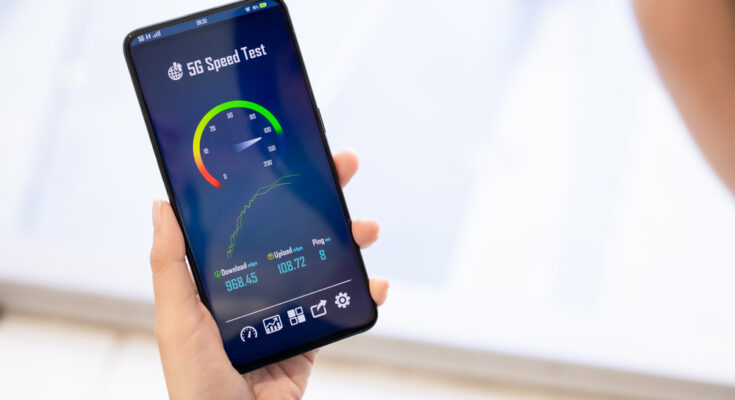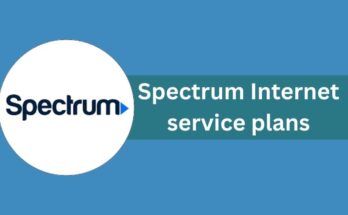On average, most households will be perfect with just 100-200 MBPS speed. For a family of 4-5, this speed is more than enough. However, if you’re looking to set up a new plan, then you should consider a few factors. Families with home offices and families full of gamers may need more than average speed. Download speeds aren’t the only thing that matters, upload speeds are equally important too.
Along with upload speeds, latency, and your location are some other factors. The average WiFi speed you experience in your home will be 20-30% lower than the advertised speed. This is because of wireless network interference, plus the speed drops as you move further away from the router.
It’s always a great idea to choose speeds slightly more than you need! Each home has a different idea of its ideal download speed. In this guide, we’ll help you answer the question, “how much internet speed do I need?”
General Download Speed Requirements Based on Online Activities
It can be easy to calculate your speed based on the account of activities you do online. Do keep in mind, these speeds are for a single user.
- Check Email & Browse the Web: 1-5 MBPS minimum
- Stream HD Content: 5-25 MBPS minimum
- Stream 4K Content & Play Online Games: 40-100 MBPS minimum
- Stream 4K Content, Online Gaming & Heavy Downloading: 200 MBPS Minimum
What is a Good Internet Speed?
According to the FCC’s definition of broadband, any connection that’s above 25 MBPS is considered a high-speed connection. This is a decent benchmark for a family of 3, but larger families should consider higher speeds. Somewhere in the range of 100-200 MBPS speeds.
For a connection to be considered a good internet connection, it should meet all the requirements of a household. Your internet experience depends on multiple factors, such as:
- How many devices are connected to the internet?
- How many devices are streaming content?
- Are you using the WiFi network for online gaming?
- Do you often download and upload files for work?
- Do you regularly stream content in 4K?
- Do your devices lag while doing online activities or not?
As you can see, good internet speeds can mean something different for every household. If you want an internet connection just for browsing email, you can make do with just 10 MBPS.
For those who constantly stream content in 4K, play online games, and have IoT devices, even 100 MBPS can feel low. Fiber plans that offer higher speeds may be the better option for most users with high-end internet needs.
Also, the speeds available to you also may be related to where you live. Rural areas have limited internet options, and also fewer internet speeds.
What is a Fast Internet Speed?
Any internet connection that has over 100 MBPS speed can be considered a fast connection. Speeds that come close to 1,000 MBPS are called gigabit speeds. Currently, most households don’t need a gigabit speed, but that may change in the future.
With the idea of smart homes becoming more and more common, gigabit plans will be the only plans able to handle internet needs. Currently, the only users that need gigabit speeds are the ones with constant 4K streaming, online gaming, and heavy upload/download.
Difference Between Upload and Download Speeds
Before you choose an ideal speed for your home, you need to know the difference between download and upload speeds.
- Download Speed: How quickly your internet connection can retrieve data from the servers (websites, videos, games, etc.)
- Upload Speed: Determines how quickly your internet connection can send data from your devices up to the internet.
Most internet service providers only advertise download speeds, it’s essential that you also check out upload speeds. While download speeds are more important, as they come more into use. Upload speeds only matter when a user wants to upload something.
Most fiber plans offer symmetrical upload and download speeds.
How Much Speed do I Need for Netflix?
If you want to stream video content on services like Netflix, YouTube TV, or any other, then your speed requirements will be different. If you have a 25 MBPS connection, and you’re streaming in 4K, you’re using up your entire bandwidth. In case there’s one more connected device, you’d need at least 50 MBPS speed.
Always consider the number of devices, and what activities they do online before finalizing a speed.
If you’re still having problems streaming, there are some other things you can try:
- Connect your streaming devices directly to the router using an Ethernet cable whenever possible.
- If you’re using WiFi to stream, then you need to keep the device as close to the router as you can. This will lead to a pleasant streaming experience.
MBPS vs GBPS
Internet speeds are measured in “megabits per second”, which is more commonly called MBPS. MPBS is ranged between 1-1,000 MBPS.
One MBPS – One megabit per second
One GBPS – One gigabit per second, or one thousand megabits.
How Can I Calculate my Download and Upload Speed?
If you have an existing service and are not sure how fast the plan is, you can check your speed using any speed test tool.
Or you can contact your internet service plan and learn the details of your plan. If you get a physical bill at your location, then you can also find details about your plans online.
Bottom Line
So how much internet speed do you need? To make sure your needs are met, you need at least 50 MBPS speed in your home.
Plans are always changing, sometimes you can get some plans for lower prices. If you can afford it, you can get faster plans, otherwise, 50 MBPS is something most households can suffice in.



